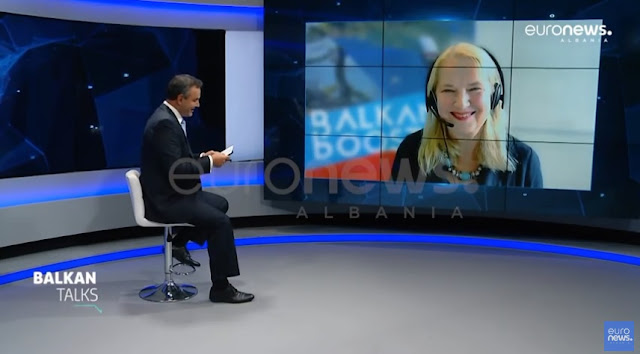The process of integration towards the European Union of the Western Balkans has stopped, beyond the will of the parties and the leaders of the region blame the internal problems of the EU member states.
But the German policy expert for the Western Balkans, Adelheid Feilcke says in the show "Balkan Talks" that the main responsibility lies in the non-fulfillment of obligations by the candidate countries.
"If more had been achieved in mutual recognition, in improving the aspect of corruption, in improving human rights and in terms of freedom of the press, it would have been easier to integrate into the European Union," she said.
She emphasizes that while the countries of the Western Balkans have not regulated relations with each other, they are not prepared to join the EU.
Mrs. Feilcke stops on the fact that Kosovo, although it has met all the conditions, has not yet achieved visa liberalization and this, according to her, is a serious problem. For her, Kosovo remains hostage to the principle of unanimity that the European Union has, where the vote of each state decides on visa liberalization with Kosovo.
"This is definitely a serious problem and Germany has clearly stated its support for visa liberalization for Kosovo. Unfortunately, the EU operates through a unanimity process and all countries must vote in favor of this process," said DW Europe Program Director.
Mrs. Feilcke expressed optimism in resolving the problem between Bulgaria and Northern Macedonia through talks that Brussels will hold with Bulgaria.
"I am convinced that there are many talks, bilateral consultations, and great efforts in the EU structures to convince Bulgaria to overcome the problem with North Macedonia," she said.
While the Balkan minishengen, for Mrs. Feilcke is valued if all the countries of the Western Balkans are full members with full powers within it.

